What are Core Beliefs and How do They Affect You
Becoming conscious of your core beliefs is the first step towards radical change.
When people want to change, typically they work towards improving their behaviors and habits. On a more fundamental level, however, change can more effectively occur from a shift in our consciousness.
For instance, core beliefs are one’s central perceptions and assumptions about the world, other people, and one’s self. In other words, they are thoughts that we have identified with and view reality through.
As a result, they influence our behaviors, personalities, and emotional well-being, whether we are conscious of them or not.

In fact, when I discovered my core beliefs in CBT (Cognitive Behaviour Therapy), my jaw dropped. It was as if I had been living in a bubble that suddenly popped. I realized I had been programmed to think and act according to these beliefs, even when they were damaging.
For this reason, I hope this article will help you uncover and understand your core beliefs. May you remove any programming that does not serve you, and may your life become more beautiful and free.
How Our Psyches Develop
When we come into this world we are essentially blank slates; we don’t have opinions or interpretations about what we perceive, yet our minds are learning and developing. Consequently, our psyches are shaped at a young age based on our personal experiences and our environment.
When we feel pain, fear, or discomfort, our minds associate aspects of our experience with suffering, whether we are aware of it or not. Likewise, our minds designed to avoid suffering and seek reward. For instance, if a child touches a hot stove, they learn to associate the stove and fire with pain.
Our core beliefs are a construct of these experiences and their associations; however, they are more central and govern a greater part of our lives.
How Core Beliefs Are Formed
Whether or not we realize it, we are all walking around with little childhood versions of ourselves that dictate what we do and don’t do. The experiences we have had as children have shaped us and they can be difficult to unlearn if we aren’t aware of them.
For example:
The Situation: You go to school with a brand new backpack and your classmates tease you.
Your Experience (reactions and feelings): You feel shame, humiliation, sadness, and hurt
The Associations: The backpack, other kids, school, and yourself
The Interpretations:
- The backpack is ugly
- Other kids hate me
- School sucks
- I am weird
Combined, these associations and interpretations are thoughts the mind has created about the situation based on your experience.
When you identify with these thoughts, they become your beliefs. Core beliefs are those associated with you, others, and the world. In the above example, the core belief is; I am (association with self) weird (interpretation of self).
If this thought remains unchallenged and you identify with it, it can become part of your core programming. Subsequently, you may begin operating from a place of self-doubt and go on to experience years, or even decades, of psychological suffering.
On the other hand, if we find the file by becoming conscious of our core beliefs, we can rewrite the code, or better yet, uninstall the program and remove the virus from our psyches.

Uncovering Your Core Beliefs
To further understand core beliefs, it would be best to identify your own and see how they impact your life. While you may have healthy beliefs, the aim is to identify the unhelpful ones and bring awareness to them so they can be transcended.
To begin, below are a few statements for you to fill in the blanks. Try not to overthink it. Instead, be aware of what comes to mind. In fact, in some cases, it may be best to use the first thing that pops into your head. Take a few moments and try to identify as many as you can.
What core beliefs do you hold about yourself?
(Examples: I am stupid, I am weird, I am not good enough, I am not attractive)
I am __________________
I am __________________
What core beliefs do you have about other people?
(Examples: other people are better than me, other people are stupid, other people can’t be trusted)
Other people are __________________
Other people are __________________
What core beliefs do you have about the world?
(Examples: the world is cruel, the world is unfair, the world is dangerous)
The world is __________________
The world is __________________
What core beliefs did you find?
When I did this exercise years ago, the unhelpful beliefs I had about myself were: I am not important; I am anxious, stupid, and too nice. That is to say, the commonality between these beliefs is a sense of not being good enough.
The beliefs I had about other people were: other people are selfish, mean, and complicated. Lastly, the world: the world is strange, corrupt, and confusing.
Thus, most of my thoughts were born from these beliefs. Additionally, the experiences I had were perceived through them, and the way I interacted with life was based upon these thoughts. It was a nightmare and I suffered deeply as a result.
The Source Of Your Core Beliefs
You may uncover more core beliefs as you spend time thinking about them, but for most people I have done this exercise with, their core beliefs are usually the first ones that come to mind. Alternatively, you can look for any triggers that make you feel sad, inferior, anxious, or angry.
When this happens, ask yourself “what does this mean about me?” you may answer, “it means I am ___________”. Look for those I am, other people are, and the world is statements in your language and your thoughts.
After all, they are sure to arise and make themselves known once you start looking. These statements are the root beliefs from which many other thoughts sprout, dig until you uncover them.
Inherited Beliefs
Fascinatingly, when I asked my parents to do this exercise, their beliefs about the world and other people, were the same as mine. Moreover, they were passed down from generation to generation.
Similarly, beliefs are embedded in our society, culture, and religion. Eventually, they are transferred onto us when we come into this world, for better or for worse. Another pattern I have noticed is that couples often carry the same core beliefs. Therefore, working through your own core beliefs can help you and your loved ones heal and help you attract the right people into your life.
Bear in mind, the point isn’t to blame anyone or society; it is simply to recognize the way the mind has been programmed. We have all been brought into the same unconscious world, and we can awaken and move beyond it.

The Impact Of Your Core Beliefs
Whether or not you hold positive or negative beliefs, I implore you to look at all of them objectively to see how they impact your life. For example, if you believe you are not good enough, your insecurities will surface in your relationships. You may filter out compliments and magnify criticism.
Your mind will always look for ways to validate this illusion because these beliefs make up its programming. If you believe that other people are selfish, you will have a hard time trusting others. Additionally, by believing the world is dangerous, you will see threats everywhere and be in a constant state of anxiety.
In reality, you, others, and the world are none of these things; they are only the mind’s perceptions. Hence, it is like looking at the world through a distorted lens. When you remove it, everything looks different. It isn’t because things have changed; rather the way you perceive them has changed.
For instance, whenever you are unhappy, anxious, angry, or feeling insecure, these emotions cloud reality, yet behind the clouds is the ever-present blue sky. The clouds don’t affect the blue sky, but they may cover it up.
Transcending Your Core Beliefs
1. Become aware of them
Without self-awareness, change is unlikely. Self-awareness is the key and once you have identified your core beliefs you can let them go. If you didn’t identify any beliefs today, over the next few days try to become mindful of triggers for psychological pain, and watch your thoughts and words.
2. Notice where the beliefs came from
Recognizing that these beliefs were created a long time ago sheds perspective on just how outdated they actually are. Additionally, they may be based upon experiences that hold no weight in the entirety of your life. Likewise, they could be based on the unconscious opinions of other people or your own unconscious interpretations.
3. See how your beliefs impact you
The belief I held, I am stupid, prevented me from asking questions, voicing my opinions, pursuing academic success, and I was incapable of believing in myself. Consequently, my mind filtered out all my achievements as if they had never happened. Take a look at your life and the beliefs you have: in what ways have they impacted you?
4. Notice the areas in your life that cause you to feel the most triggered
Emotions like anger, sadness, and anxiety, to name a few, are wake up calls. Use these moments as opportunities to deepen in self-understanding and you will eventually learn to overcome them. Notice when you are triggered. Are you commonly triggered by the same person or situation? How do you feel? What thoughts do you have about yourself, others, and the world when you are triggered?
5. Challenge your core beliefs by looking at the evidence for and against them
How true are your beliefs? For example, when I looked at my core belief, I am not important, another thought came to mind, everyone is important; therefore I must be important too. While I am not important to everyone, I am important to some people.
Namely, when I objectively looked at the statement, other people are selfish, this too was not true. Not everyone is selfish, and no one is selfish all the time. What does it even mean to be selfish? If someone looks out for themselves, are they selfish?
Really look and try to see things objectively. The more you look, the more you will see the relativity of your thoughts and beliefs.
If you are new to this blog, I also recommend reading “The Perils Of The Unobserved Mind” and “Discover The Full Power Of Mindfulness” to help you challenge your thinking and let go of judgments and interpretations.

Letting Go And Living Freely Beyond The Conditioned Mind
You are not who you take yourself to be, you are far greater than you can fathom. Things are not this or that; they simply are as they are. Anything more is the ideas and interpretations we attach to ourselves and others, and all perceptions are relative. They are not absolute reality. Therefore, let go of thoughts and judgments and awaken to the kingdom of peace within you.
Awareness of conditioned thinking is already an indication of awakening and unlocking the unbound joy and freedom within us. The program of the mind may operate for some time, but with awareness, a new authority begins to emerge. You are not apart from this authority, and these unconscious patterns can only continue to operate when you are not conscious of them.
As you deepen in awareness, your resolve will strengthen. You will awaken from the dream of identification with the mind and its core beliefs. Your very existence becomes blessed with the realization that you are not your thoughts, and more and more delusions will fall. Eventually, you will recognize yourself beyond mind and body, and you will feel joy and love radiating through you.
May you be happy and well,
With love,
Ravelle
Join my email list to get updates on meditation, mindfulness, and mental health.
Related articles:


Great post! Since moving back home I’ve become aware of some core beliefs passed down from generation to generation. One example is a woman needs a man to survive in this world. It turns into a neediness based on fear. Rewriting your story takes courage to see it and feel the pain of it. It’s like shedding layers of who you are not…and I’ve found this to be painful many times. Then reinventing yourself takes really knowing who you are. Again, loved the post!
Thank you Jennifer, I am glad you enjoyed it. Ah yes, that belief is quite common. It takes a lot of courage and self-awareness to recognize this. When you peel back the layers of that belief there may be an “I am” or “the world is” statement hiding underneath. And yes! You said it perfectly, it’s shedding the layers of who you are not. Lots of love 🙏🏽❤️